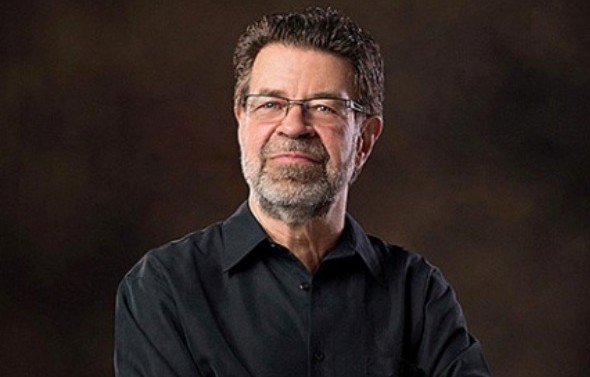The Amazing World of Voice-Over Actors: From Funny Commercials to Serious Business
Ever listened to a TV commercial and thought to yourself, “Man, that voice is so cool!” Or maybe you’ve been made to sit through some corporate training video and found yourself actually kind of enjoying the narrator? If so, then you’ve experienced magic at work—that of the voice-over actors!
Want to explore the exciting world of voiceover actors? We’ll look closer at exactly how they bring commercials to life and take even mundane corporate videos and make them interesting. By then, you definitely will be in a position to begin appreciating all those voices that you hear every day.
Let’s Get Commercial: Voice-over Artists in Advertising
Imagine yourself engrossed in your favorite TV series when it suddenly goes into a commercial. A smooth, welcoming voice tells you about the best pizza that ever crossed your mind. The interesting thing is, almost before you know it, you would have dialed up requesting permission from your parents to order pizza for dinner. That’s the power of an awesome commercial voice-over!
What Do Commercial Voice-Over Actors Do?
What cool jobs voice-over talents do. They want to bring something out of you while selling you some product or service. They get you tickling your funny bone or exciting you, or they just make you a little sad in that great way—like when those adopt-a-pet commercials come around.
These voiceover talents are comparable to chameleons in their ability to sound super excited about a new toy in one moment and then thread completely into a calm, trusting voice the next for a car commercial. It’s almost like they have several different personalities all squeezed into that voice of theirs!
What Makes a Great Commercial Voice-Over Actor?
Being awesome at commercial voice-overs requires some special skills:
1. Crystal Clear Voice: They should enunciate clearly enough so that everybody gets them right, even if the ad is playing in a noisy room.
2. Energy and Enthusiasm: Commercial voiceover artists often have to sound excited about something as mundane as soap!
3. Emotion Express: They’re really good at making you feel things—just with their voice. Happy, sad, excited, curious—they can do it all!
4. Speed Talking: Sometimes, the commercials want them to say tons of words quickly, especially at the end of some radio commercials. It’s as if they were verbal marathon runners!
5. Flexibility: They must be able to morph their voices into different characters or styles, becoming, on one day, a talking dog and, the next day, a ‘cool’ teenager.
Funny and Famous: Commercial Voice-Over Stories
Some commercial voice-overs are so famous that they remain etched in people’s minds for several years. Remember the Geico Gecko? That little lizard with that funny accent still has people giggling at his asses and is fast approaching 20 years of on-screen action!
Or how about the deep, dramatic voice that says, “In a world.” at the beginning of movie trailers? That was a voice actor named Don LaFontaine, and he’s become so famous that people have actually called him “The Voice of God”!
A Commercial Voice-Over Work Career: The Ups and Downs
Yeah, it’s fun to work as a commercial voice talent, but most of the time, it’s not. Sometimes they have to do tons and tons of takes to get it just right. Imagine saying “Mmm, I really love yogurt!” fifty times in a row!
But some of the rewards are pretty cool, too. It must be a great feeling when a voice actor finally hears their commercial on television or the radio. And sometimes the voices become so recognizable that people know them even when they’re speaking live and in person!
from Boardrooms to Training Rooms: Corporate Voice-Over Work
Now, onto the more somber side of voice-over work: corporate narration. It may sound boring, but give me a second—it’s actually quite interesting!
What’s Corporate Narration All About?
Corporate narration is when voice-over actors lend their voices to all types of business-related materials. In other words, this could be anything from training videos, like how to use a new computer program, to company announcements for employees with really big news.
– Explainer videos. I guess you know what those are. Those are animations that explain complicated stuff in an extremely simple way.
– Audio for business presentations
– The voice for phone systems. You know, like when you call a company and the recorded person tells you to press one for this or two for that.
What Corporate Voice-Over Actors Aim at
While commercial voice actors are meant to elicit emotions, corporate voice-over talent has a different kind of task ahead. Primarily, their role is to explain things to people clearly. They are supposed to be able to make information that can be confusing or mundane into something easy and attention-grabbing to listen to.
It is pretty much like having that really cool teacher who could make even the most mundane subject fun to learn about!
What Makes a Great Corporate Voiceover Actor?
Corporate voice-over work requires some special skills too:
1. Clear and Professional: They need to sound trustworthy and knowledgeable, like someone you are really going to want to learn from.
2. Good with Big Words: Corporate scripts often include complicated words or technical terms. These voice actors need to say them correctly and make them sound natural.
3. Staying Power: Sometimes, corporate narrations can run quite long. Actors have to hold on and keep both energy and voices steady, sometimes for hours on end.
4. Attention to Detail: Getting every word right in corporate work is huge. One mispronounced word could change the entire meaning!
5. The “Interested” Voice: Even when the subject matter is super dull, they need to sound interested. It’s like magic – they can make a video about tax laws sound almost exciting!
Corporate Voice-Over in Action
Imagine that you’ve got a new job, and you’re supposed to plow through a lot of training videos on your first day. Sounds awful, right? Then you start the first one, and the narrator has this very warm, friendly voice. He describes everything clearly and even sprinkles in a couple of jokes. Now, learning about the email system isn’t so bad!
That’s what a brilliant corporate voice-over talent does. What can be dry, confusing information can easily become more understandable and memorable.
Challenges and Rewards with Corporate Voice-Over Work
Corporate narration is not always easy. Most of the time, the scripts are very long and full of complicated words. Sometimes a voice actor can spend hours in a recording booth saying the same lines repeatedly to get them just right.
But there are some pretty neat perks, too. Corporate voiceover artists end up learning about really interesting stuff. One day it’s voicing a video about how airplanes work; the next, it describes some new kind of robot. I mean, you’re getting paid to learn cool stuff!
Moreover, their job serves to help people do their jobs. If a clear and engaging training video, employees can learn it fast and do better work. That is quite awesome!
Commercial vs. Corporate: Same Job, Different Flavors
Now that we’ve checked out commercial and corporate voiceover work, take a look at how they stack up against one another. Kind of like comparing ice cream flavors—they’re both delicious, just in different ways!
Tone and Style: The Big Difference
Commercial voice-overs are quite like giving the ears a party. Mostly, they are peppy and pulsating with life; voice artists sound overly excited and sometimes very funny.
Voice-overs incorporates are quite like your friendly teacher. The character or tone is usually more austere and professional, but it cannot be said to be boring. A good corporate voice actor can still be warm and engaged like a kid, only in a more grown-up way.
Who’s Listening?
Commercial voice-overs are trying to appeal to the mass market–pretty much any person who will buy the product. That could be kids, adults, or everyone in between.
Corporate voiceovers usually have a more limited audience. They’re often talking to employees of a particular company or the people involved in a certain industry. So they can use more specialized language and terms that those people will understand.
What’s the Goal?
Ads want to have you do something; normally, these are calls to action meant to get you to buy a product or to try out a service. They’re trying to convince or get you pumped about whatever it is they’re peddling.
Corporate narrations encompass more teaching or telling. They want to help you understand something or learn how to do something new.
Skills That Work Everywhere
Although commercial and corporate voiceover work is quite different, several voice-over skills are useful for both:
1. Enunciation: This is important whether one is selling soda or explaining the latest policy at a company. Clear speaking allows it to understand quickly.
2. Traditional Voice Control: Both categories of work would require actors to be able to control their voice—modulating tone, speed, and emotion as required by what is said.
3. Acting Ability: The voice actor should always maintain the proper aura of spontaneity and be as natural and believable when a person is reading from a script.
4. Adaptability: A voice actor needs to be flexible, flowing through projects requiring different styles.
5. Professionalism: Be professional, friendly to deal with, and have fun on a commercial, or be stern on a corporate video.
Final Words
And there you have it – a glimpse into the fascinating world of the voiceover performer for commercials and corporate narrations. These creative talents use their voices to enlighten us, to entertain us, and, quite literally, to alter what we think or do sometimes.
The next time you are really enjoying the commercial playing or focused on a school training video, take time to actually listen to the voice. Consider how much talent and dedication goes into making those words sound just right.















